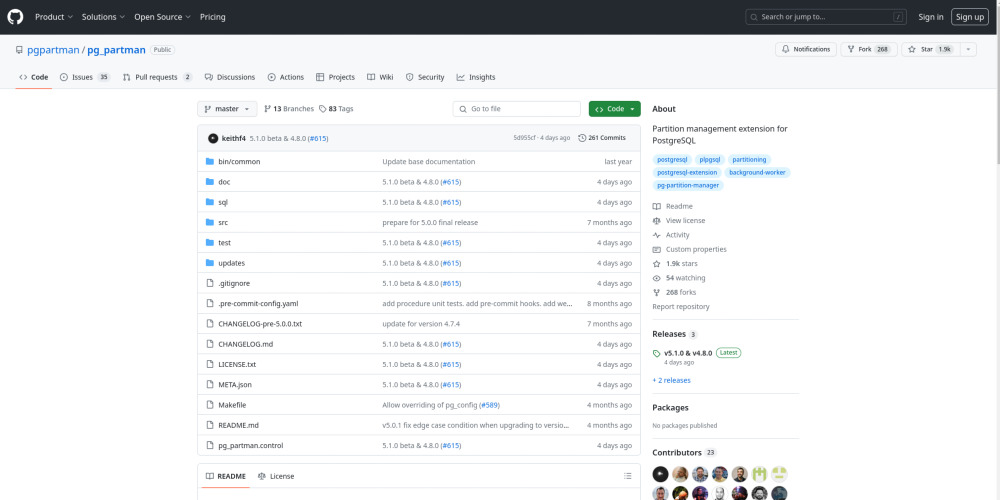pg_partman 5.1.0 & 4.8.0 released
Crunchy Data is proud to announce the release of pg_partman 5.1.0 & 4.8.0.
Highlights of this release
Version 5.1.0 April 2, 2024
- Support LIST partitioning for single value integers.
- EXPERIMENTAL support for partitioning based on numeric values
- Allow explicit ordering of partition set maintenance
- Properly inherit tablespaces
Further changes and bug fixes can be found in the CHANGELOG
Version 4.8.0
- Fix the partition_gap_fill() function to allow skipping the analyze step. Note this is not an option in 5.x since the analyze step was refactored and never runs automatically during a call to the gap fill function anymore.
- Note that there is no way to directly install version 4.8.0. A prior version must be installed first and then upgraded to 4.8.0. It is recommended that you migrate to the latest major version for continued support of pg_partman.
pg_partman is an extension to create and manage both time-based and number-based table partition sets. As of version 5.0.0, only built-in, declarative partitioning is supported and the older trigger-based methods have been deprecated.
The declarative partitioning built into PostgreSQL provides the commands to create a partitioned table and its children, but it does not provide a means of automating that child table maintenance over time (Ex. adding new children, dropping old ones based on a retention policy). It also does not provide a means to easily turn an existing table into a partitioned table or vice versa. pg_partman aims to use the built-in declarative features that PostgreSQL provides, but build upon them to provide those missing features as well as many others to help make managing partitions easier.
Please submit issues or pull requests for any issues encountered. General questions can be submitted to discussions.
Links:
Website - https://github.com/pgpartman/pg_partman
Installation - https://github.com/pgpartman/pg_partman#installation
Documentation - https://github.com/pgpartman/pg_partman/blob/master/doc/pg_partman.md
Release Notes - https://github.com/pgpartman/pg_partman/blob/master/CHANGELOG.txt
Crunchy Data - https://www.crunchydata.com
Crunchy Data is proud to support the development and maintenance of pg_partman.
Both version 5.1.0 and version 4.8.0 of pg_partman for PostgreSQL are now available for download. pg_partman is an extension that allows for the management of table partition sets that are based on either time or numbers. Additionally, it deprecates older trigger-based methods and provides support for declarative partitioning that is built in. pg_partman is designed to automate maintenance over time and convert existing tables into partitioned ones, thereby simplifying the process of partition management. This is in contrast to the declarative partitioning that PostgreSQL can perform.

